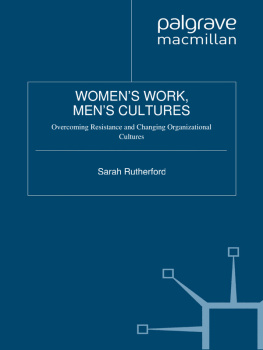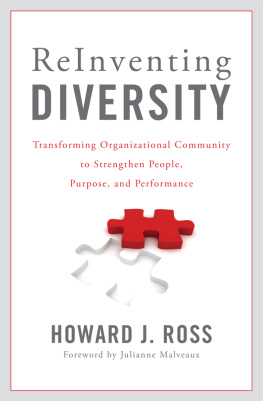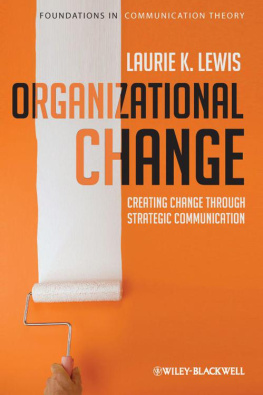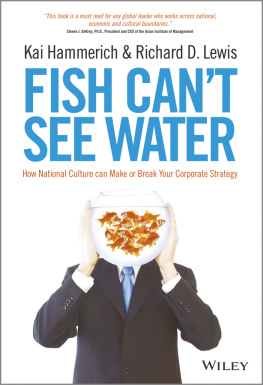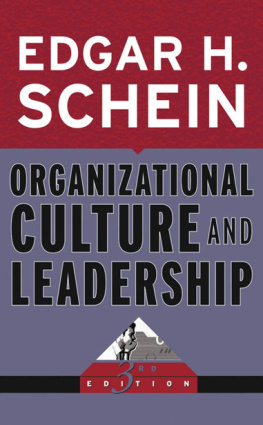WOMENS WORK, MENS CULTURES
WOMENS WORK,
MENS CULTURES
Overcoming Resistance and
Changing Organizational
Cultures
Sarah Rutherford
Director, Rutherford Associates


Sarah Rutherford 2011
All rights reserved. No reproduction, copy or transmission of this publication may be made without written permission.
No portion of this publication may be reproduced, copied or transmitted save with written permission or in accordance with the provisions of the Copyright, Designs and Patents Act 1988, or under the terms of any licence permitting limited copying issued by the Copyright Licensing Agency, Saffron House, 610 Kirby Street, London EC1N 8TS.
Any person who does any unauthorized act in relation to this publication may be liable to criminal prosecution and civil claims for damages.
The author has asserted her right to be identified as the author of this work in accordance with the Copyright, Designs and Patents Act 1988.
First published 2011 by
PALGRAVE MACMILLAN
Palgrave Macmillan in the UK is an imprint of Macmillan Publishers Limited, registered in England, company number 785998, of Houndmills, Basingstoke, Hampshire RG21 6XS.
Palgrave Macmillan in the US is a division of St Martins Press LLC,
175 Fifth Avenue, New York, NY 10010.
Palgrave Macmillan is the global academic imprint of the above companies and has companies and representatives throughout the world.
Palgrave and Macmillan are registered trademarks in the United States, the United Kingdom, Europe and other countries
ISBN-13: 978-0-230-28370-1
This book is printed on paper suitable for recycling and made from fully managed and sustained forest sources. Logging, pulping and manufacturing processes are expected to conform to the environmental regulations of the country of origin.
A catalogue record for this book is available from the British Library.
A catalog record for this book is available from the Library of Congress.
10 9 8 7 6 5 4 3 2 1
20 19 18 17 16 15 14 13 12 11
Printed and bound in Great Britain by CPI Antony Rowe, Chippenham and Eastbourne.

FIGURE AND TABLE
Figure
Table

ACKNOWLEDGEMENTS
This book had been in my head for a few years now but it never seemed the right time to write it. Circumstances and a chance meeting with my publisher Eleanor Davey-Corrigan at another book event in early 2010 conspired to make what had been an intention into a reality. I was committed!
My first thanks go to Professor Sylvia Walby, who encouraged me to do an MSc in Sociology at the London School of Economics back in 1991 and later to do a PhD under her supervision at Bristol University. Her intellect and dedication to womens equality have been and continue to be an inspiration.
Thanks go to the openness and honesty of all my research subjects and the men and women who generously gave their time to talk to me about their experience and to share their knowledge, and often on more than one occasion.
The team at Palgrave Macmillan have been a delight to work with and I thank them.
My thanks go to my good friend Juliet Gwyn Palmer who applied her excellent editorial skills to the first draft, and gave many helpful suggestions and lastly and most importantly to Ian Annand who provided practical and emotional support during the whole process. This book is dedicated to all women everywhere who are entering the workplace with rightful expectations of achievement and success.

CONTEXT
SCOPE
This book draws on a broad range of materials, research, and experience. Many of the ideas and theories as well as the two main case studies came out of my PhD research, which investigated the ways in which different organizational (and divisional) cultures inhibited and/or marginalized women managers. These organizations were interested in the subject matter and gave me unparalleled access to the highest levels of management, for which I am extremely grateful.
I approached the airline that here I have called Airco because of its history and commitment to equal opportunities. It employed nearly 30,000 people and I researched five of its divisions, Marketing, Finance, Human Resources, Cabin Services, and Cargo. These divisions were like discrete companies and their cultures varied hugely. Management was divided into managers and senior managers, and overall, 21 percent of managers were women.
Investco, the pseudonym I have used for a bank, was much smaller with only 3,000 employees and had no history of equal opportunities, although it was known in the City for employing a relatively higher percentage of women than other financial institutions 15 percent of all managers were women. I researched three different divisions, Broking, Investment Management, and Corporate Finance, and there were three levels of management: manager, assistant director, and director.
Between these two organizations I had eight very distinctive cultures to analyse for their impact on women managers. The research involved a detailed survey sent to a random stratified sample of male and female managers (215 with a 72 percent response rate) and semi structured recorded interviews with a random stratified sample of male and female managers (15 men and 29 women).
Both companies have changed structurally and culturally a great deal since my research, and the practices described are not a reflection of their practices today. While this material is now some years old, the depth and detail of the data is invaluable for illustrating the very different ways in which cultures operate, and in providing substance to some theoretical considerations which are becoming increasingly relevant today. All interviewees in this research have been anonymized to protect confidentiality.
The original data and concepts have been developed and added to through subsequent research that I have conducted alone or with others, and examples drawn widely from my work as a consultant as well as a whole body of academic material on gender and work. I undertook a number of interviews for the specific purposes of this book. The majority of interviewees are named in the text although a number requested confidentiality particularly a group of young women starting out in their careers. Other unidentified sources are drawn from my consultancy work and for obvious reasons are heavily anonymized.
I have had the privilege of being a young employee of an investment bank, and more recently a non-executive director of a FTSE 250 company, also a bank. Without question these experiences in an elite and male-dominated area of finance inform my view of how organizational cultures can marginalize and exclude in obvious and tangible ways, and more and more in the most subtle and intangible ways. I bring my own reflections into my work, mingling them with the research and observations of others. And lastly my thoughts are developed from the many conversations I have had with professionals and working women both over the years as well as for the specific purposes of the book.
Next page
